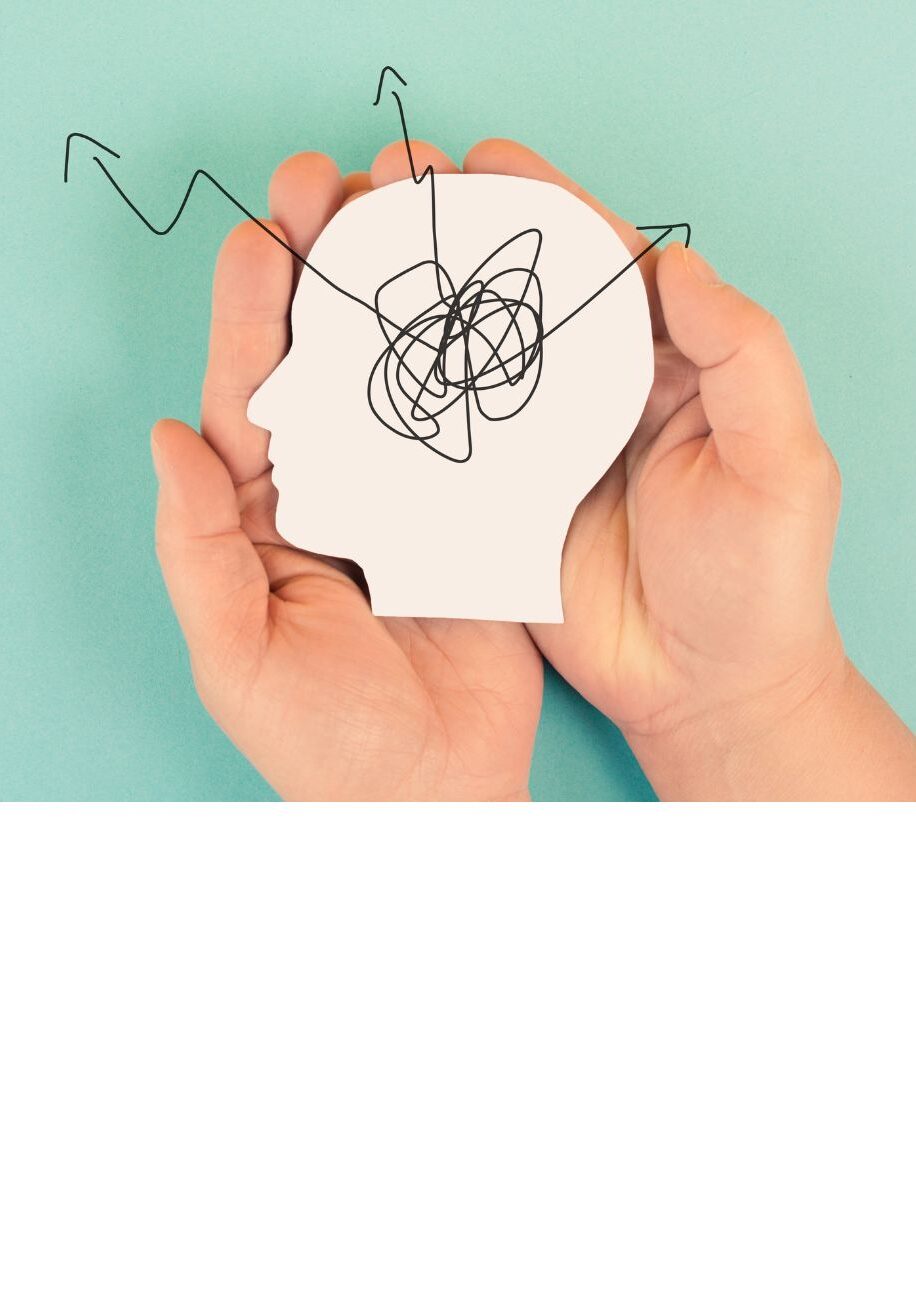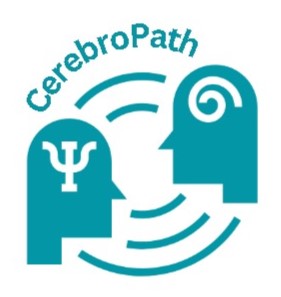SEPTEMBER 16, 2024

The Neuropsychology Revolution: Is India Ready to Embrace Brain Science?
MR. Sudipta pal
Neuropsychologist | Digital Therapy Associate
Neuropsychology sounds fancy, doesn’t it? Most of us think of lab coats, brain scans, and complex tests far removed from everyday life. But here’s a little secret: neuropsychology isn’t just for scientists or clinical settings. It’s for anyone who wants to understand their brain’s hidden dynamics.
Picture this: You wake up with a splitting headache. What’s the first thing you do? Reach for a painkiller, right? Now, imagine if our minds had a similar ‘quick fix’ approach whenever stress, anxiety, or mental fog hit us. Wouldn’t life be so much easier?
But here’s the catch – when it comes to mental health, there are no quick fixes. Especially in India, where neuropsychology is still seen as a mysterious, science-y thing that many people think is for “severe” cases. But is it? Or are we overlooking its everyday value?
The real question is, is India ready to integrate neuropsychology into our lives, schools, and workplaces? Spoiler alert: The answer is kind of… but we’ve got some work to do. Let’s dig into why.
1. The Current Landscape: The Great Mental Health Divide
First things first – let’s get real about mental health in India. While awareness is growing, the divide between knowing about mental health and acting on it remains wide. The culture of “If I’m not visibly unwell, I must be fine” still persists.
Question: Why is mental health still sidelined in many parts of India?
The answer is layered. For many, mental health remains a taboo topic, and mental health interventions are seen as last resorts rather than proactive tools for well-being. But neuropsychology offers a fresh perspective – focusing on how well your brain is functioning, not just how you feel. This shift from crisis management to brain optimization can make a world of difference.
Picture your brain like a car engine. Sure, your car might be running, but is it functioning at peak performance? Neuropsychology helps tune that engine, ensuring everything runs smoothly before the check engine light blinks.
2. What Is Neuropsychology Anyway? It’s More Than Brain Science
Let’s clear up some confusion here. Neuropsychology isn’t just for those with severe conditions or for academic research. It’s for anyone who wants to understand how their brain shapes their behavior, emotions, and actions.
Neuropsychology focuses on brain-behavior relationships, using scientific methods to understand cognitive functions like memory, attention, problem-solving, and emotional regulation.
Question: Why do we assume neuropsychology is only for extreme cases? Is it really a bit too complex for regular folks?
Surprisingly, no! Take a moment and think about your average day. Do you find it hard to focus on tasks, or manage stress? Neuropsychology can help with that. Neuropsychological interventions can be incredibly practical. For instance, if someone struggles with focus or impulsivity, they might find themselves missing deadlines or overreacting to stress. Neuropsychology helps by identifying the why behind these behaviors and offering strategies to retrain the brain.
Let’s say you’re in the middle of a family argument. Neuropsychology can help you recognize the cognitive triggers that lead to impulsive reactions. With that awareness, you can train your brain to respond more thoughtfully rather than lashing out. It’s like having a user manual for your brain!
3. Everyday Applications: When Brain Science Meets Daily Life
Here’s a surprising fact: you don’t need a complex diagnosis to benefit from neuropsychology. It can help with everyday challenges we all face – whether it’s struggling with multitasking, poor sleep, or even motivation to exercise.
Question: How can neuropsychology improve something as simple as our daily routine?
Imagine you’re juggling a full workday, taking care of your family, and trying to squeeze in time for yourself. You might feel like you’re constantly falling behind. Neuropsychology can offer ways to improve your attention span or decision-making by breaking down cognitive patterns and developing specific exercises to strengthen those “mental muscles.”
And the beauty of neuropsychology? You don’t always need a clinical setting. Simple activities, like practicing mindfulness or memory games, can help improve cognitive flexibility and stress tolerance. Think of it as brain yoga!
4. Neuropsychology and Indian Culture: Are We Ready to Break the Stigma?
Now let’s tackle one of the biggest barriers: stigma. In India, mental health still carries a social stigma. People often shy away from therapy, and neuropsychology can seem even more intimidating because it sounds so ‘scientific.’
Question: Why do we still treat therapy like a last resort in India?
For many, seeking mental health support is seen as a weakness. But let’s flip that narrative. What if therapy and neuropsychology were viewed the same way as going to the gym? After all, nobody judges you for wanting to get fit, right?
Consider how common it’s become to see people doing yoga in parks or signing up for gym memberships. What if neuropsychology sessions became just as normalized? You’re not just exercising your body but optimizing your brain for a healthier, more balanced life.
The truth is, we need to shift the focus from crisis-driven therapy (waiting until things get really bad) to proactive mental wellness. Neuropsychology offers us tools to keep our minds sharp before burnout, depression, or anxiety take over.
5. The Science of Neuroplasticity: Rewiring Your Brain for Better Living
Here’s where things get fascinating. One of the central ideas in neuropsychology is neuroplasticity – the brain’s ability to reorganize and form new neural connections. Basically, your brain isn’t fixed; it can grow, change, and adapt throughout your life. Isn’t that amazing?
Imagine learning to play a new instrument in your 40s. Neuroplasticity allows your brain to build new pathways, helping you develop new skills. It’s not just about therapy for mental health conditions; it’s about brain optimization.
Neuropsychology taps into this concept of neuroplasticity to help people rewire unhelpful patterns of thinking, improve focus, and even manage chronic stress. And guess what? It’s all backed by science. Recent studies show that cognitive behavioral therapy (CBT), a popular neuropsychological intervention, can physically alter brain structure in a positive way .
6. The Elephant in the Room: Is India Ready for This Shift?
We’ve seen a lot of positive movement – younger generations are more open to therapy, and mental health discussions are slowly finding their way into mainstream media. But neuropsychology still has a long way to go in gaining public trust and awareness.
Question: What needs to change for neuropsychology to become a part of the everyday mental health conversation?
It starts with education. Mental health professionals need to better understand and incorporate neuropsychological assessments into their practice. Schools and workplaces should offer programs that promote cognitive health alongside physical health. And let’s not forget the role of policy – we need mental health services to be more accessible and affordable, especially in rural areas.
We’re seeing changes in how people view mental health, but neuropsychology is still lagging behind in the conversation. Why? Because it’s not yet seen as a tool for everyday wellness.
7. Barriers, Barriers Everywhere: Why Aren’t We There Yet?
One of the biggest challenges is access. Let’s face it: neuropsychological services aren’t available in every neighborhood.
Question: If it’s not accessible, how will people even know about it?
Even in urban centers, where services are available, they can be expensive or seen as “too specialized.” And then there’s the whole issue of *education* – not just for patients but for mental health professionals themselves.
Imagine you’re an athlete, but your coach has never heard of weight training. Sure, you can still work on your fitness, but you’re missing out on a major tool that could boost your performance. That’s the case with many therapists and doctors who aren’t fully aware of the benefits of neuropsychology.
8. The Cultural Factor: How Can Neuropsychology Fit Into Indian Society?
This shift in mindset isn’t just about science – it’s about culture. India has a rich tradition of wellness practices like yoga and Ayurveda, which emphasize holistic health. Neuropsychology, in many ways, complements these practices by adding a scientific layer to understanding the mind-body connection.
A yoga practitioner may focus on mindfulness and breathing exercises, which naturally enhance mental clarity. Neuropsychology can take it a step further by explaining the cognitive changes that occur during these practices, such as improved attention and emotional regulation.
This is why it’s crucial to integrate neuropsychology into a framework that respects Indian cultural practices while offering new insights into mental well-being.
Conclusion: What’s Next for Neuropsychology in India?
The question we started with remains: Is India ready for a neuropsychological revolution?
We’re taking steps in the right direction, but full acceptance will take time. The shift will come when brain science becomes as accessible and mainstream as yoga or meditation – an essential part of daily wellness.
Here’s a final question for you: What would it take for neuropsychology to be as common as meditation or yoga in India? Could we one day see it as a standard part of our self-care routine?
It’s time to start thinking about how we can turn this science into everyday practice and reshape the way we think about mental wellness.
References:
- Bush, S. S., Dutt, A., Fernández, A. L., Łojek, E., McDonald, S., & Schrieff-Brown, L. (2023). Ethical issues in clinical neuropsychology: International diversity perspectives. Applied Neuropsychology: Adult, 1-17.
- Casaletto, K. B., & Heaton, R. K. (2017). Neuropsychological assessment: Past and future. Journal of the International Neuropsychological Society, 23(9-10), 778-790.
- Dutt, A., Evans, J., & Fernández, A. L. (2022). Challenges for neuropsychology in the global context. In Understanding Cross-Cultural Neuropsychology (pp. 3-18). Routledge.
- Hand, L. J. (2022). The role of telemedicine in rural mental health care around the globe. Telemedicine and e-Health, 28(3), 285-294.
- Nehra, A., Makkar, R., Hazrati, R., & Singh, G. (2024). Role of Clinical Neuropsychology. In Principles and Practice of Neurocritical Care (pp. 485-497). Singapore: Springer Nature Singapore.
- Patel, K., Kshirsagar, S. V., Deshmukh, A. H., Patil, S., & Shrma, B. (2023). Neuroplasticity and Mental Health: Harnessing Brain Adaptability for Therapy. Journal for ReAttach Therapy and Developmental Diversities, 6(1), 756-761.
- Reddy, V. E. N. K. A. T. A. S. H. I. V. A. (2019). Mental health issues and challenges in India: A review. International Journal of Social Sciences Management and Entrepreneurship (IJSSME), 3(2).
